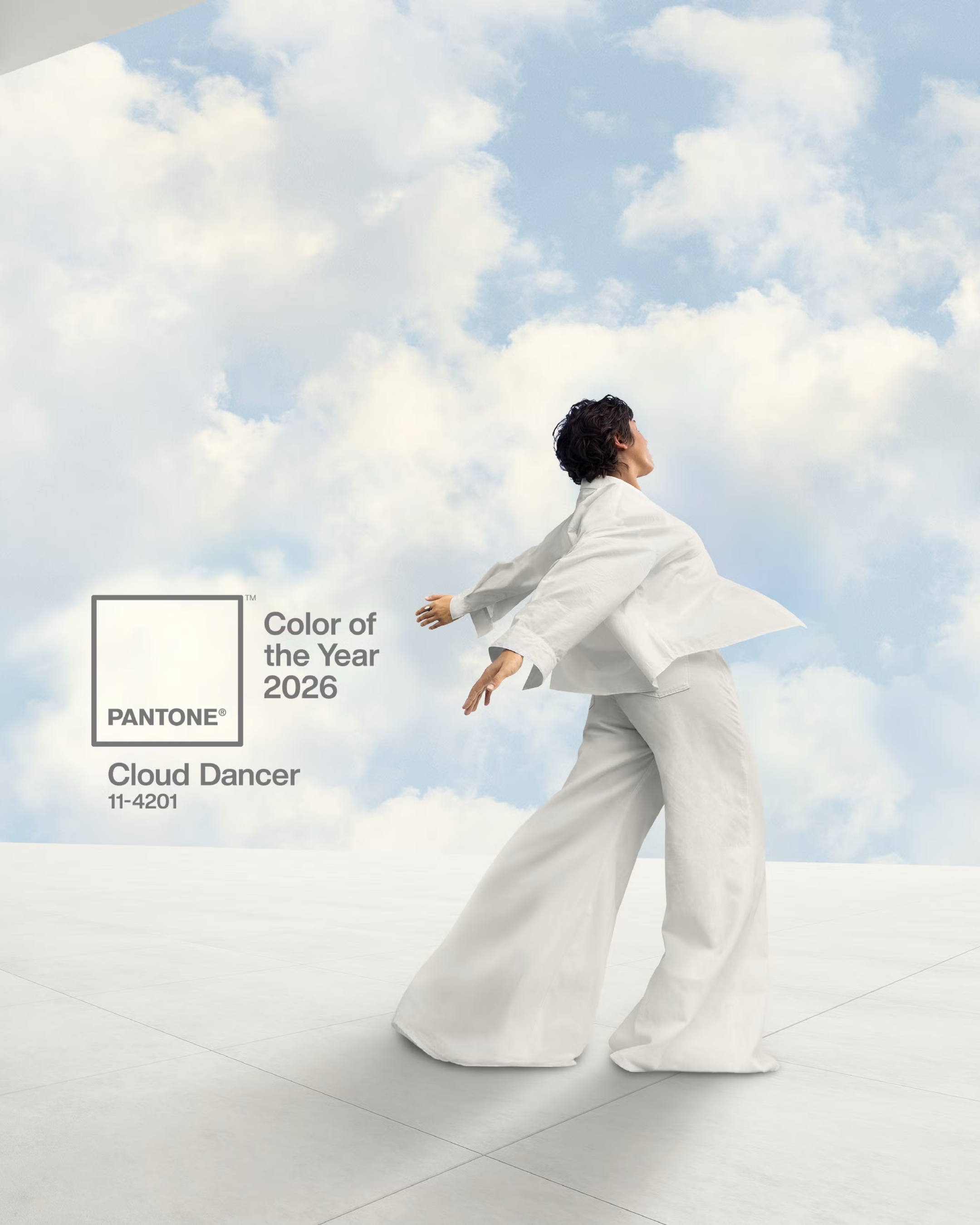Let me start with a confession: I’m a beauty junkie. My bathroom cabinet has seen it all—half-used serums, eye shadow palettes collecting dust, and more lipsticks than I could ever wear. But lately, I’m finding myself drawn to a different kind of beauty philosophy—one that’s quieter, more intentional, and yes, minimalist. It’s a change that feels almost rebellious in today’s world of more, more, more. But here I am, stripping back my routine, and I have to say—I’m loving it.
Now, I have questions. For one, why am I suddenly obsessed with minimalism? Maybe it’s the fatigue of keeping up with the latest beauty trends that seem to change faster than the seasons. Or maybe it’s the clutter—the sheer number of products I’ve accumulated that, quite frankly, I don’t need. Whatever the reason, I’ve become fixated on the idea of doing more with less, of curating a routine that’s not about deprivation but about celebrating quality over quantity.
Minimalism in beauty
Nuori was my gateway into this minimalist world, and it didn’t take long for me to fall in love. This Danish skincare brand, founded by Jasmi Bonnen, is all about purity and efficacy—two words that resonate deeply with anyone tired of the over-complicated, over-preserved products that dominate the market. Having worked at L’Oréal, Bonnen saw firsthand how skincare products were being pumped full of preservatives to meet the industry-standard 30-month shelf life. But what good is a long shelf life if the product is no longer nourishing your skin? Nuori takes a different approach: fresh, small-batch formulations that are created every 12 weeks in a Danish lab, stamped with a start-using-by and expiry date. It’s skincare that demands attention and care, much like fresh produce, urging us to rethink how we treat our skin.
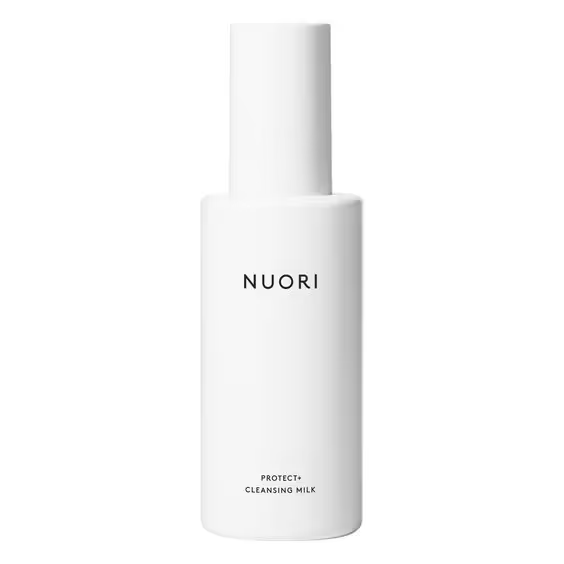
And let’s talk about the packaging. Designed by New York-based agency NR2154, Nuori’s packaging is as minimalist as it gets—lacquered glass bottles and airless pumps in a colour scheme of white that not only preserve the product's integrity but also look beautiful on a bathroom shelf. It’s functional, yes, but also beautiful in its simplicity. There’s an inherent luxury in Nuori’s simplicity, a quiet confidence that speaks volumes without the need for flashy branding or over-the-top claims.

But minimalism in beauty doesn’t stop at skincare. Makeup, too, has seen a shift towards a more restrained, thoughtful approach, with SKKN by Kim leading the charge. The makeup collection, previously known as KKW, relaunched under SKKN by Kim, created by Kim Kardashian. The aesthetic of the brand is unmistakably Kim—neutral tones of beige, grey, and greige that reflect the calming, minimalist design of her home. There’s a cohesion here that feels intentional—a move towards creating a sanctuary of calm in a world that often feels overwhelming.
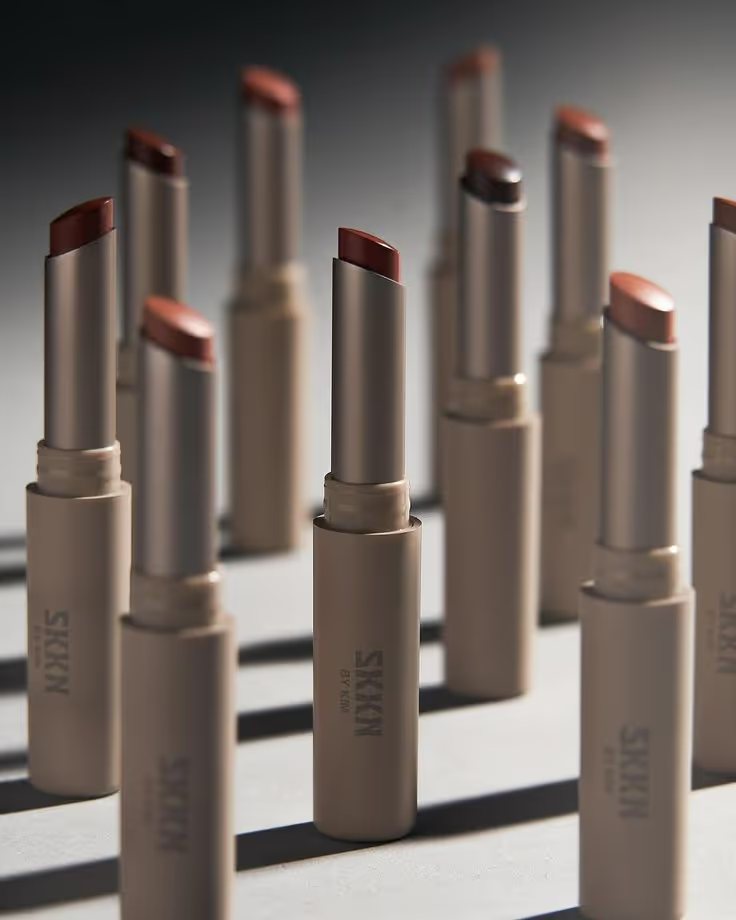
The products themselves are housed in refillable packaging that’s as functional as it is beautiful, with clean, science-backed ingredients that nourish the skin at all stages of maturity. Yes, the price point is on the higher side, but there’s a sense that what you’re paying for is quality, not quantity. There’s a certain power in knowing that what you’re putting on your face is just enhancing what’s already there—not trying to change you into something else. For someone like me, who once favoured dramatic, transformative looks, this shift towards subtlety feels like a revelation. It’s makeup designed for the real world, for real people, and it’s utterly refreshing.

But perhaps the most surprising—and delightful—aspect of this minimalist journey has been my discovery of multi-use products. I used to be skeptical of anything that claimed to do it all, but Jones Road Beauty’s Miracle Balm has completely changed my perspective. Created by Bobbi Brown after she left her namesake brand in 2016, Jones Road is all about clean, high-performance products that work for everyone, regardless of age or skin type. This balm is like a Swiss Army knife but for your face—perfect for a dewy cheek, a quick lip tint, or even a soft wash of colour on the eyes. It’s the kind of product that makes you wonder why you ever bothered with a 10-step routine in the first place. The packaging is simple yet stylish, reflecting the brand’s ethos of clean beauty without compromise. It’s makeup that feels fresh, modern, and incredibly easy to use, stripping away the unnecessary steps and leaving you with just the essentials.
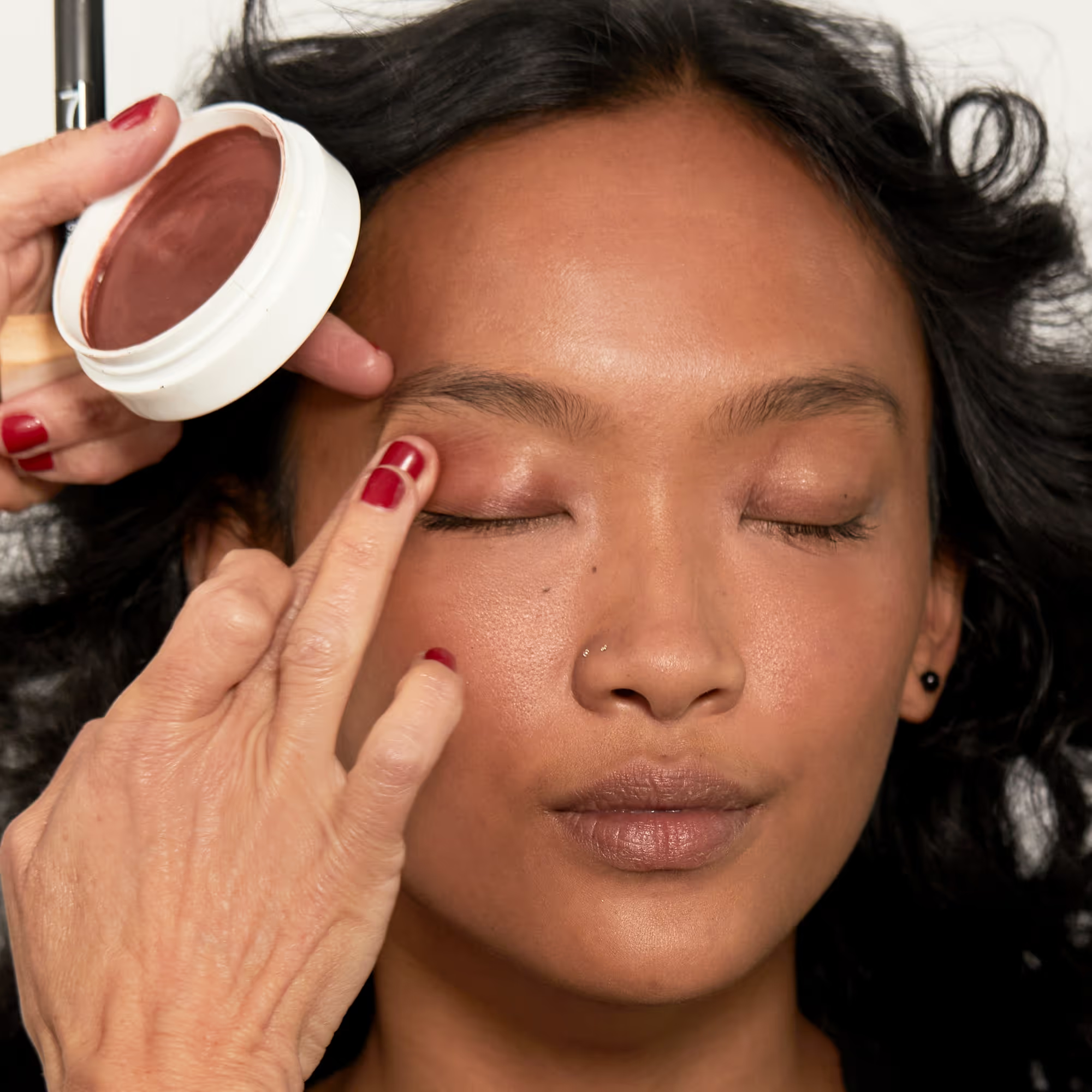
And then there’s Merit Beauty, another brand that perfectly encapsulates the minimalist movement. Founded by Katherine Power in 2021, Merit was created as an antidote to the overwhelming world of beauty—a brand that focuses on straightforward, foolproof products that you can swipe on and go. The formulations are vegan, cruelty-free, and designed to avoid ingredients that can trigger acne or inflammation. The packaging is as chic as it is functional, often recyclable, and always thoughtful. Merit’s approach is all about low-maintenance luxury, and it’s no wonder that it has quickly garnered a following among beauty enthusiasts looking for products that deliver results without the fuss.
The brand’s Brow 1990 pencil, for example, is a nod to the over-plucked brows of the ‘90s but reimagined for a modern audience. It’s a product that blends nostalgia with practicality, offering a way to define your brows without the harshness of a traditional pencil. It’s this blend of function and form that makes Merit stand out in a crowded market, offering products that are as beautiful to use as they are to look at.

But if there’s one brand that truly embodies the minimalist movement, it’s The Ordinary. Launched by Deciem under the vision of Brandon Truaxe, The Ordinary has disrupted the beauty industry with its no-nonsense, ingredient-focused approach. Truaxe, frustrated by the marketing fluff that dominates the beauty world, created The Ordinary to cut through the noise and offer products that are simple, effective, and incredibly affordable. The brand’s products are named after their key ingredients—Niacinamide 10% + Zinc 1%, Hyaluronic Acid 2% + B5—making it easy for consumers to understand exactly what they’re using and why.
The Ordinary’s packaging is a reflection of its ethos—clean, clinical, and devoid of unnecessary embellishments. But what’s really remarkable is the brand’s marketing strategy. Eschewing celebrity endorsements and flashy campaigns, The Ordinary relies on its products to speak for themselves.
Their recent global out-of-home campaign by Uncommon Creative Studio is a masterclass in minimalist marketing. The Ordinary’s campaigns are intentionally star-free, leaning into the science behind their products with witty, minimalist ads. “Someone said working with celebrities would be good for our brand. But we couldn’t find one with a degree in biochemistry.” It’s a bold move in an industry obsessed with celebrity endorsements, but it works. The ads are sparse, featuring only lines of witty copy against blank white backgrounds, with simple images of serum drops or cleansers in the margins. One ad quips, “People find it odd that we don’t name our products,” another ad reads, “We tried it once. But scientists are terrible copywriters.” The Ordinary proves that transparency, authenticity, and simplicity can be just as compelling—if not more so—than the most extravagant marketing campaigns.
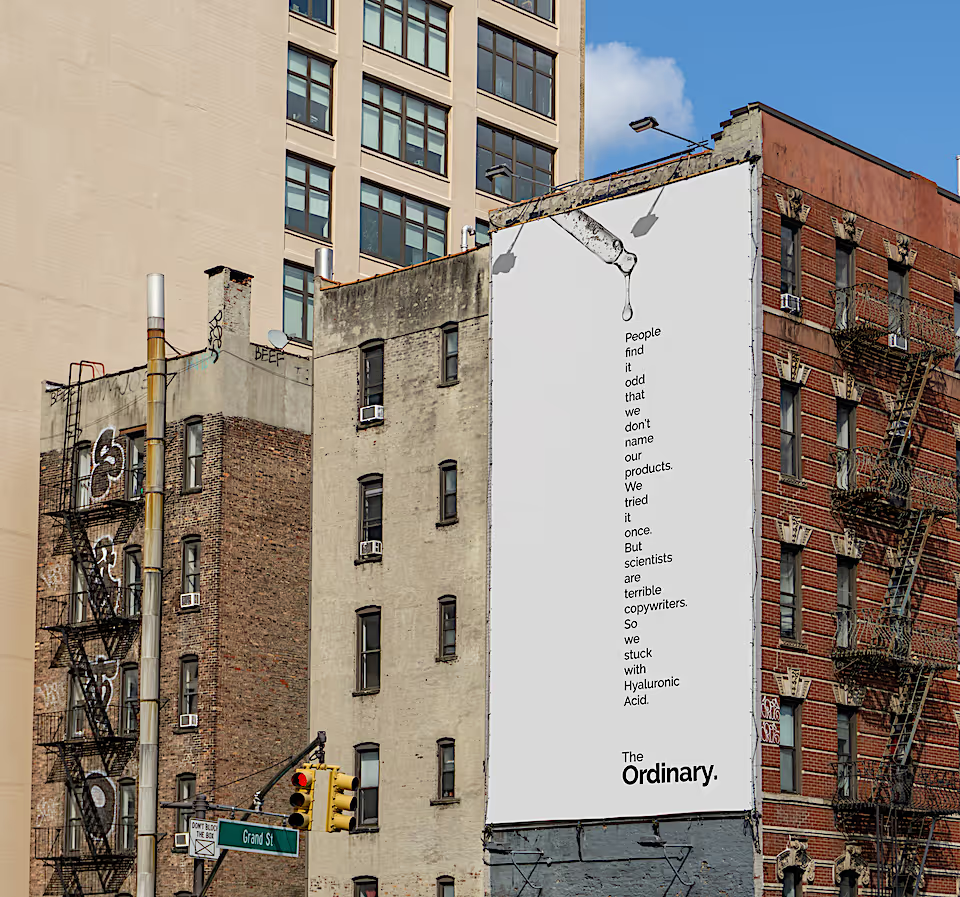
So why does all of this matter? Because minimalism in beauty isn’t just about having fewer products; it’s about choosing the right ones. It’s about understanding that true beauty isn’t found in an endless collection of makeup and skincare, but in the thoughtful selection of products that enhance, nourish, and simplify. In a world that’s constantly pushing us to consume more, minimalism offers a different kind of luxury—the luxury of choice, of intention, of finding joy in the essentials.
For me, this journey into minimalist beauty has been nothing short of transformative. It’s changed not only how I look at my beauty routine but also how I approach life. It’s about stripping away the excess, finding clarity in simplicity, and embracing the elegance of less. And honestly? I’m never going back.


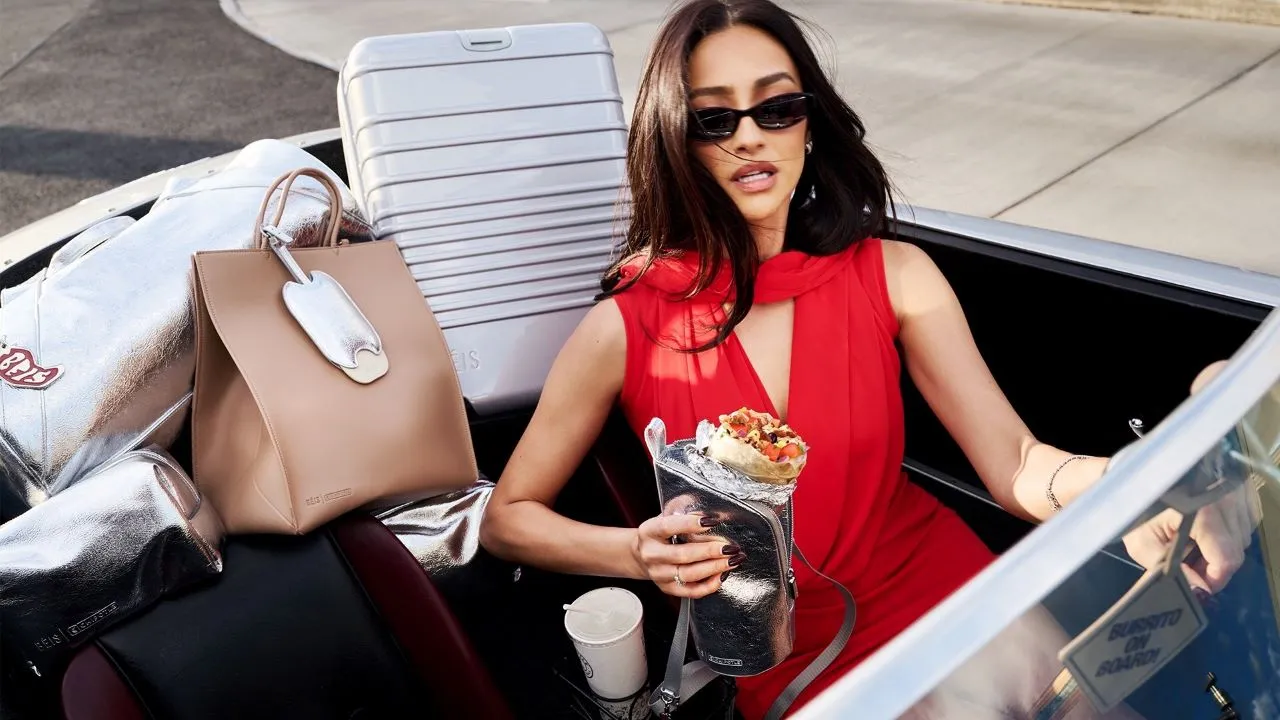
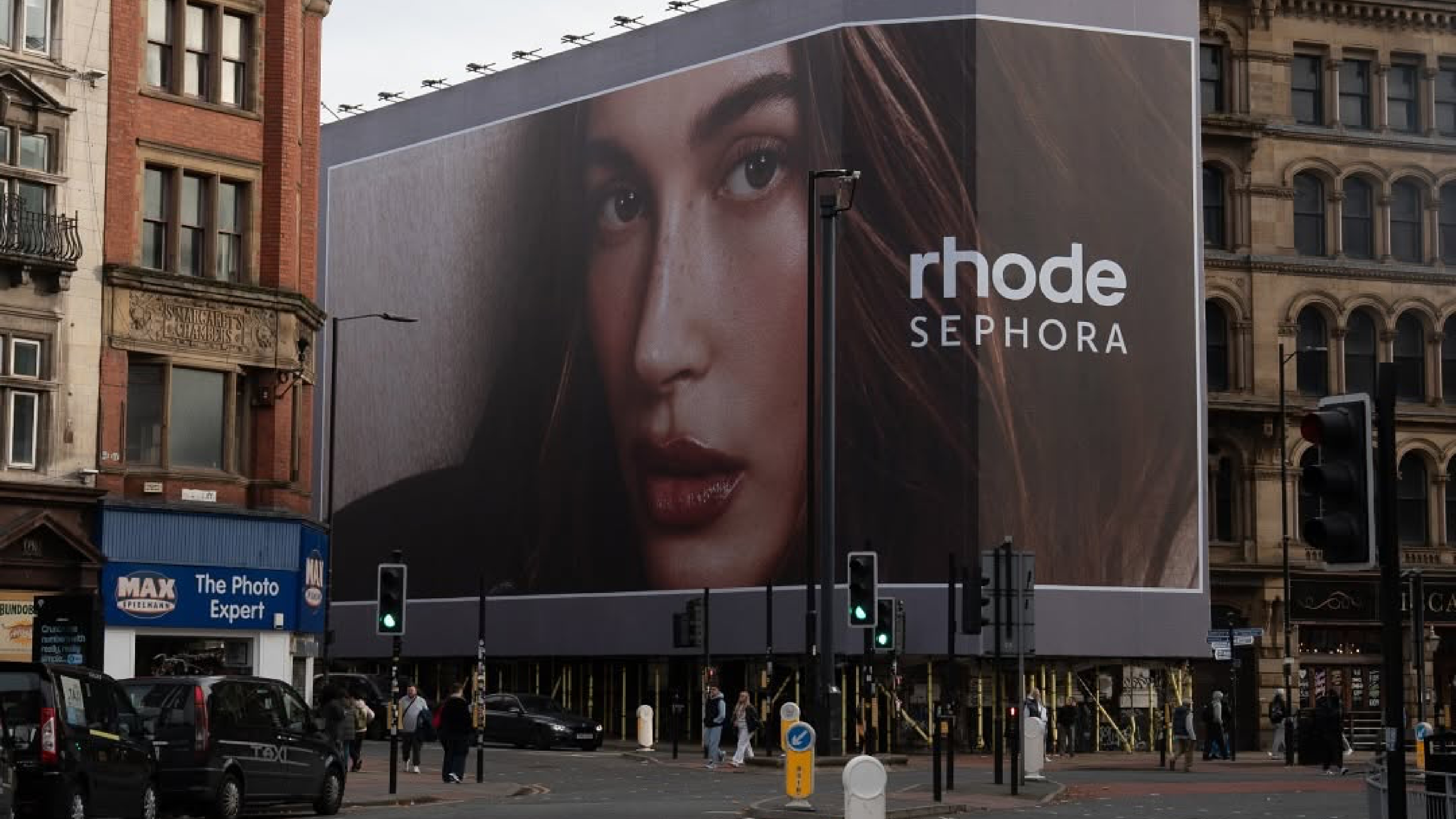


.svg)


.svg)
.svg)
